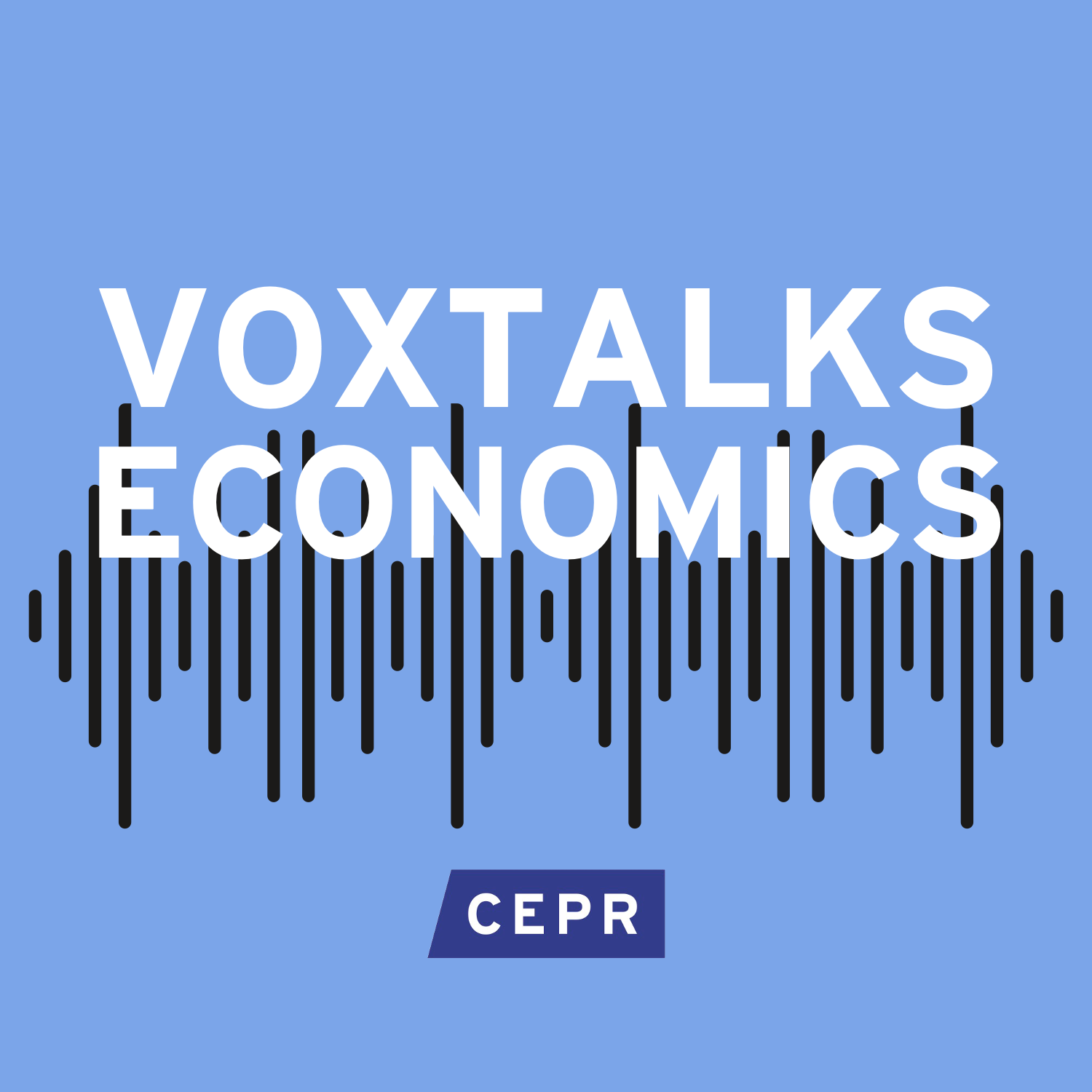

VoxTalks Economics
VoxTalks
Learn about groundbreaking new research, commentary and policy ideas from the world's leading economists. Presented by Tim Phillips.
Episodes
Mentioned books

Mar 8, 2024 • 18min
S7 Ep12: Women are from Mars too
Are men from Mars, and women from Venus? If so, policies that seek to close the gender gap by equalising opportunities are unlikely to succeed. A recent paper finds that, contrary to popular belief, women and men’s traits are remarkably similar. Ruveyda Nur Gozen and Tim Phillips talk to Michelle Rao and Oriana Bandiera, two of the researchers who wrote the paper, about prejudice, policy, and the stubborn persistence of prior beliefs.
Papers mentioned in the podcast:
Bandiera, O., Parekh, N., Petrongolo, B., & Rao, M. (2022). Men are from Mars, and Women Too: A Bayesian Meta‐analysis of Overconfidence Experiments. Economica, 89, S38-S70. (link to paper)
Bandiera, O., Fischer, G., Prat, A., & Ytsma, E. (2016). Do women respond less to performance pay? Building evidence from multiple experiments. (link to paper)
Rao, M. (2021) Gender Differences in altruism: a Bayesian hierarchical analysis of dictator games. Mimeo
Bayer, A., Hoover, G. A., & Washington, E. (2020). How you can work to increase the presence and improve the experience of Black, Latinx, and Native American people in the economics profession. Journal of Economic Perspectives, 34(3), 193-219. (link to paper)
Bursztyn, L., González, A. L., & Yanagizawa-Drott, D. (2020). Misperceived social norms: Women working outside the home in Saudi Arabia. American economic review, 110(10), 2997-3029. (link to paper)
Diaz-Pardo, G., Rao, M. (2024). Women and Cash Transfers: how program design and local conditions relate to causal estimates of impact.
Field, E., Jayachandran, S., & Pande, R. (2010). Do traditional institutions constrain female entrepreneurship? A field experiment on business training in India. American Economic Review, 100(2), 125-129.
Stansbury, A., & Schultz, R. (2023). The economics profession’s socioeconomic diversity problem. Journal of Economic Perspectives, 37(4), 207-230. (link to paper)

Mar 1, 2024 • 23min
S7 Ep11: Weder di Mauro: What went wrong at Credit Suisse
It is 12 months since the sudden downfall of Credit Suisse, one of a tiny number of Too Big to Fail global banks. Beatrice Weder di Mauro was one of an expert team who were asked by the Swiss Department of Finance to investigate the crisis and resolution. She talks to Tim Phillips about what they discovered, and the lessons we ignore at our peril.

Feb 23, 2024 • 29min
S7 Ep10: The euro at 25
Exploring the history of the euro over 25 years, including its resilience through tough times. Topics cover the aspirations, challenges, and reforms of the Euro Project, the impact of Covid on fiscal action, and the necessity of political leadership for euro evolution.

Feb 16, 2024 • 16min
S7 Ep9: Can parents teach patience?
Researcher Daniela Del Boca discusses how parents influence their children's patience, work ethic, and saving habits. The podcast delves into the intergenerational transfer of these traits in Italian families and their impact on the economy. Insights on the correlation between parental patience levels, financial awareness, and children's behaviors are explored, highlighting the importance of early childhood development and parent-child interactions.

Feb 13, 2024 • 36min
S7 Ep7: Climate finance instruments
Frédéric Samama has pioneered the development and introduction of instruments that make climate finance not only possible, but practical. He tells Alissa Kleinnijenhuis and Tim Phillips about his research, and how investors can incentivise firms to decarbonise.

Feb 9, 2024 • 16min
S7 Ep8: Main Street’s pain, Wall Street’s gain
During Covid, America waited every Thursday for the release of the Initial Jobless Claims numbers at 8.30am. What happened next? Nancy Xu tells Tim Phillips that asset price movements may reflect expectations of government intervention as well as sentiment about the economy.

Feb 2, 2024 • 15min
S7 Ep6: The impact of mandatory profit sharing
Recorded at the CEPR Paris symposium 2023: In France, a law that compels many firms to share profits with their employees. Which employees end up earning more? And does their share in their employer’s success make them more productive? David Thesmar talks to Tim Phillips.

Jan 26, 2024 • 19min
S7 Ep5: Microdata in Europe
Recorded at CEPR Paris Symposium 2023: data that's collected at the level of a household, a firm, or even an individual is extraordinarily valuable for researchers. But there's not enough affordable, accessible, high-quality data of this type in Europe. Tim Phillips talks to Filippo di Mauro of CompNet and Ugo Panizza of the Graduate Institute in Geneva about their plans, backed by CEPR, to create more open, more consistent sources of policy-relevant microdata.

Jan 19, 2024 • 20min
S7 Ep4: The seeds of knowledge
Recorded at CEPR Paris Symposium 2023: Can we make a link between pre-modern scholars and GDP – and, if so, what is that link? David de la Croix has compiled data on Europe’s scholars from 1000-1800AD, including their expertise, where they were born and where they studied. Tim Phillips asks him if the seeds of knowledge were also the seeds of modern economic growth.

Jan 12, 2024 • 27min
S7 Ep3: Young economists: Paris 2023
Recorded at CEPR Paris Symposium 2023: Tim Phillips meets three of the young researchers who were chosen to present. Margot Belguise, Arnaud Dyevre and Yasmine van der Straten talk about their work – and offer some advice for anyone who is starting out on their research.


